In Award-winning Course Students Solve Global Challenges Brick by Brick
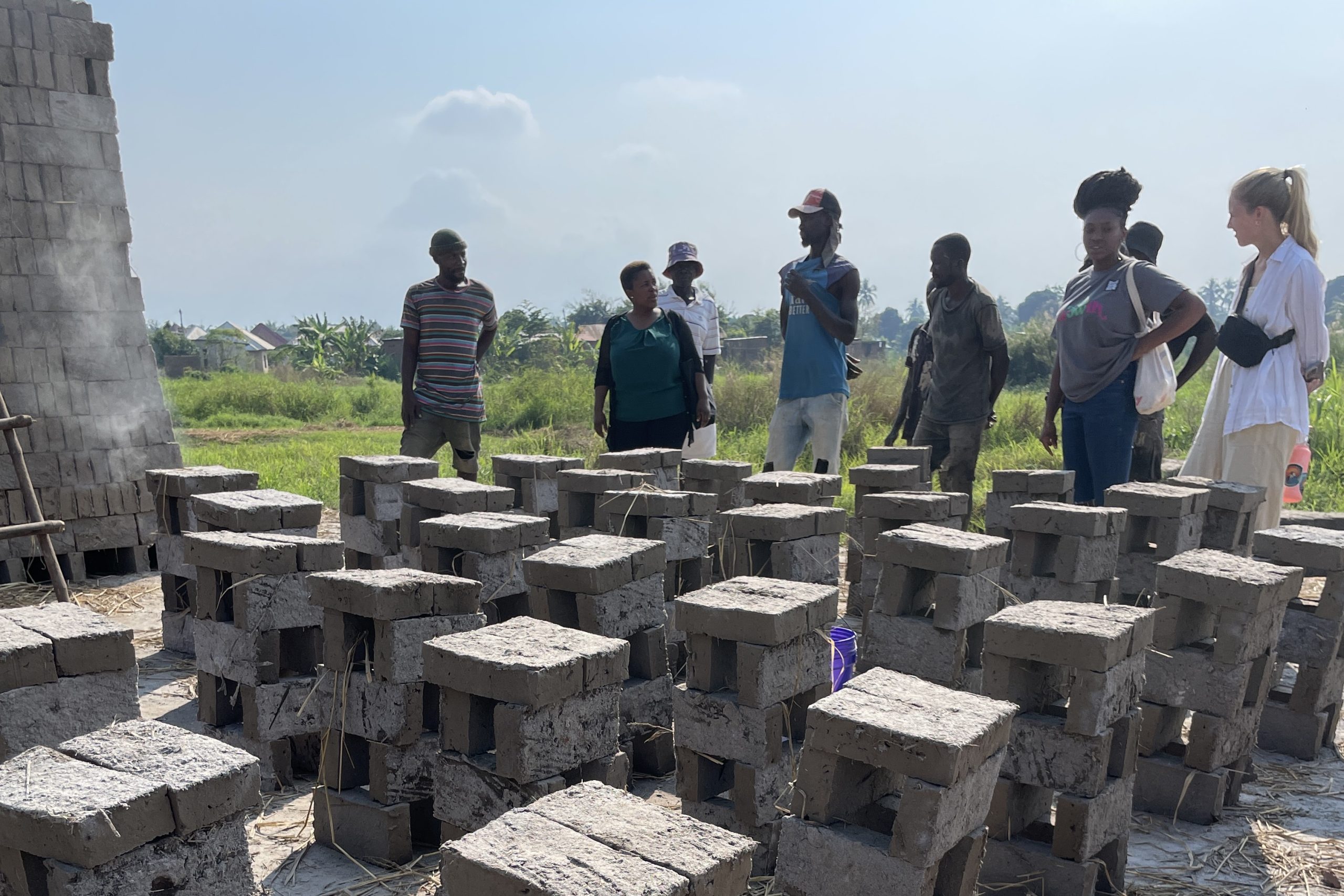
The collaborative course between architecture and engineering challenges conventional architectural thinking
What if the design of a brick could reduce the spread of malaria?
That question lies at the heart of the course “Building Health: Resilient Building Materials for Global Health & Sustainability.” Cross-listed between architecture and civil engineering and developed collaboratively by architecture professor Liz McCormick and civil engineering professor Brett Tempest, “Building Health” challenges conventional architectural thinking by seeing vast untapped potential for the humble brick.
Through innovations in both the geometry of bricks and their composition, students in the seminar are creating building blocks that can outwit mosquitoes, make spaces more comfortable to inhabit, and reduce negative impact on the environment. Rather than focusing on a single brick prototype, the course asks students to come up with new brick designs and test them using different “recipes” for the brick material.





The curriculum’s expansive approach recently earned McCormick a 2025 Brick in Architectural Education Prize from the Brick Industry Association and the Association of Collegiate Schools of Architecture. The award recognizes architecture courses that “create a stimulating environment for learning about brick.”
McCormick says that as an architect, researcher, and teacher she likes “to do things as simply as possible – really big things with small modifications.” Not only a guiding principle, “High-Performance, Low-Tech” is the name of another award-winning course, for which she received a 2021 Buell Center Course Development Prize in Architecture, Climate Change, and Society.
For several years McCormick has particularly been interested in tropical climates, and in 2022 she visited the East African nation of Tanzania for the first time after attending a Pan-African Mosquito Control Association conference. She also began working with Tempest, whose research involves incorporating natural and recycled materials into concrete and masonry construction to improve environmental sustainability. Brick is the most common building material in the world, but the manufacturing process can often lead to high levels of environmental pollution.
In 2023, McCormick and Tempest received a grant from the National Science Foundation for their project, “Sustainable Housing & Protective Building Materials: Masonry as a Link Between Accessible Construction, Energy, Human Comfort and Mosquito Control in Rural Tanzania.” The three-year grant would allow the professors to fund student researchers in field work in Tanzania. Last summer, after co-teaching a spring seminar, they took their first cohort of research assistants to Tanzania.
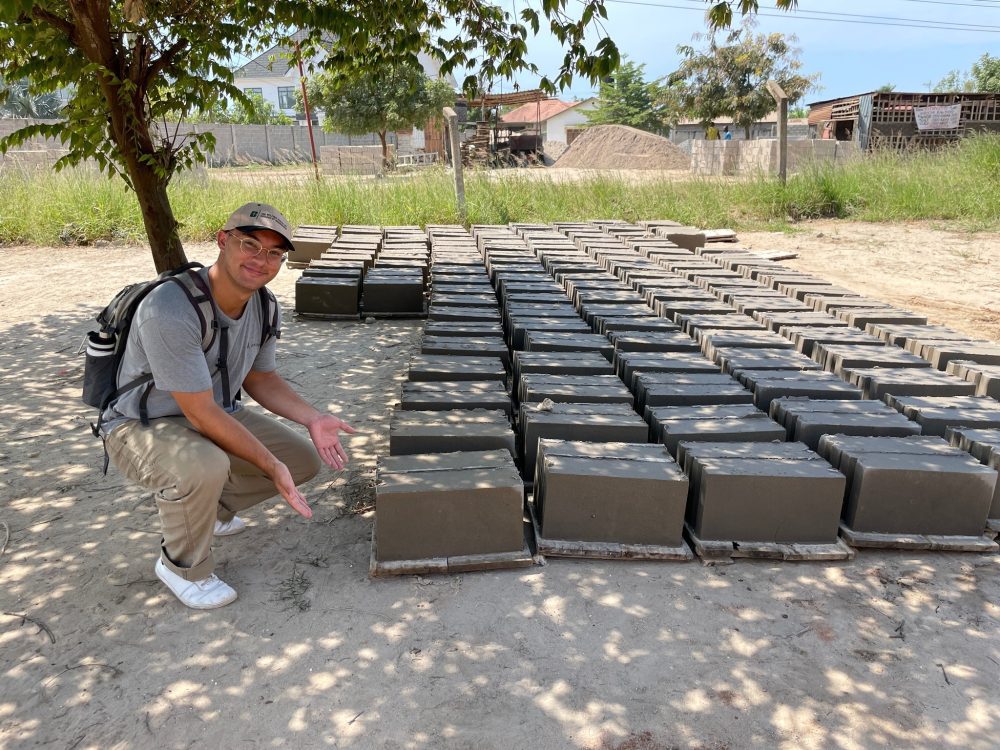
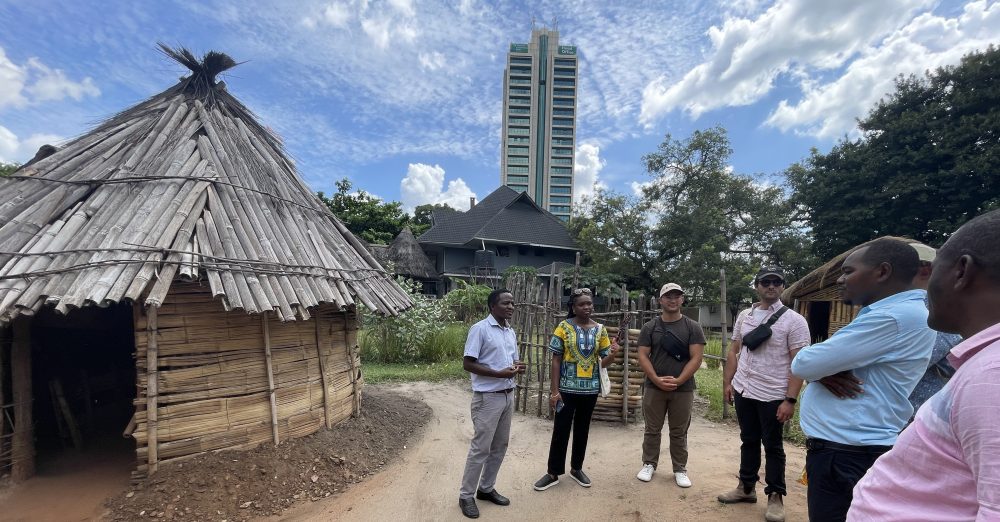
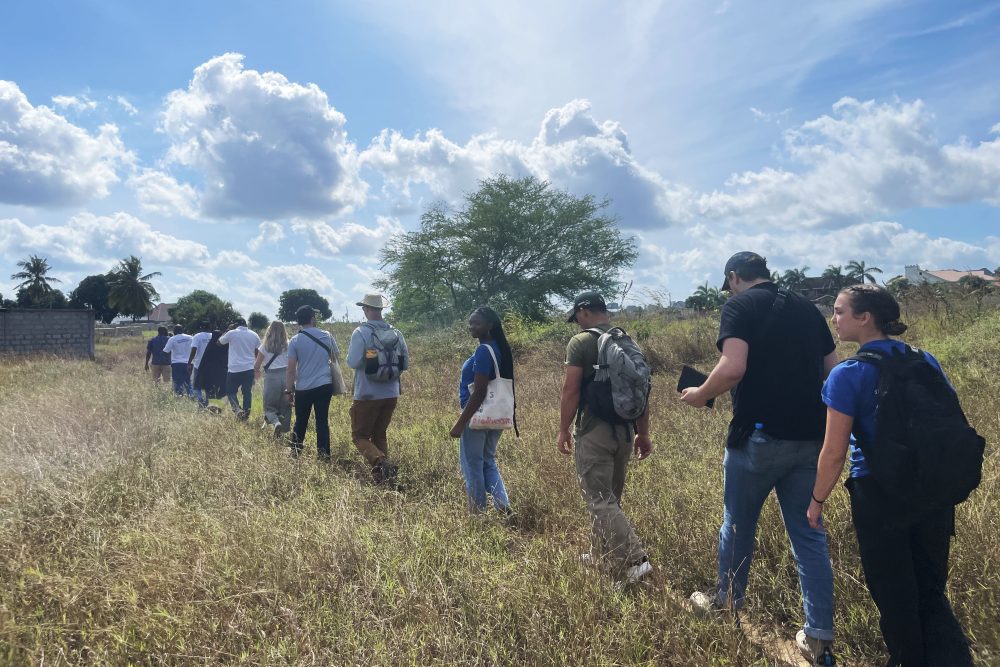
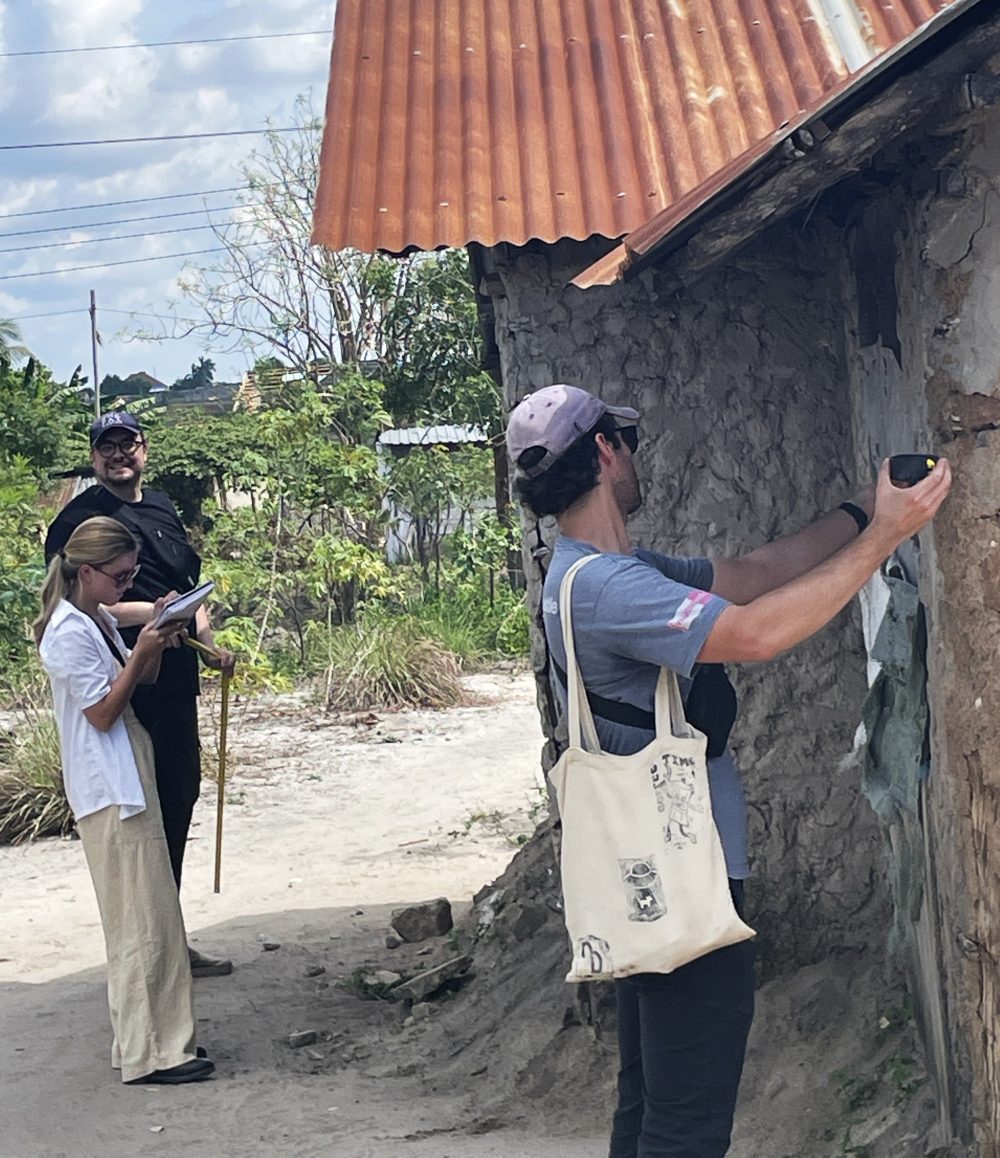
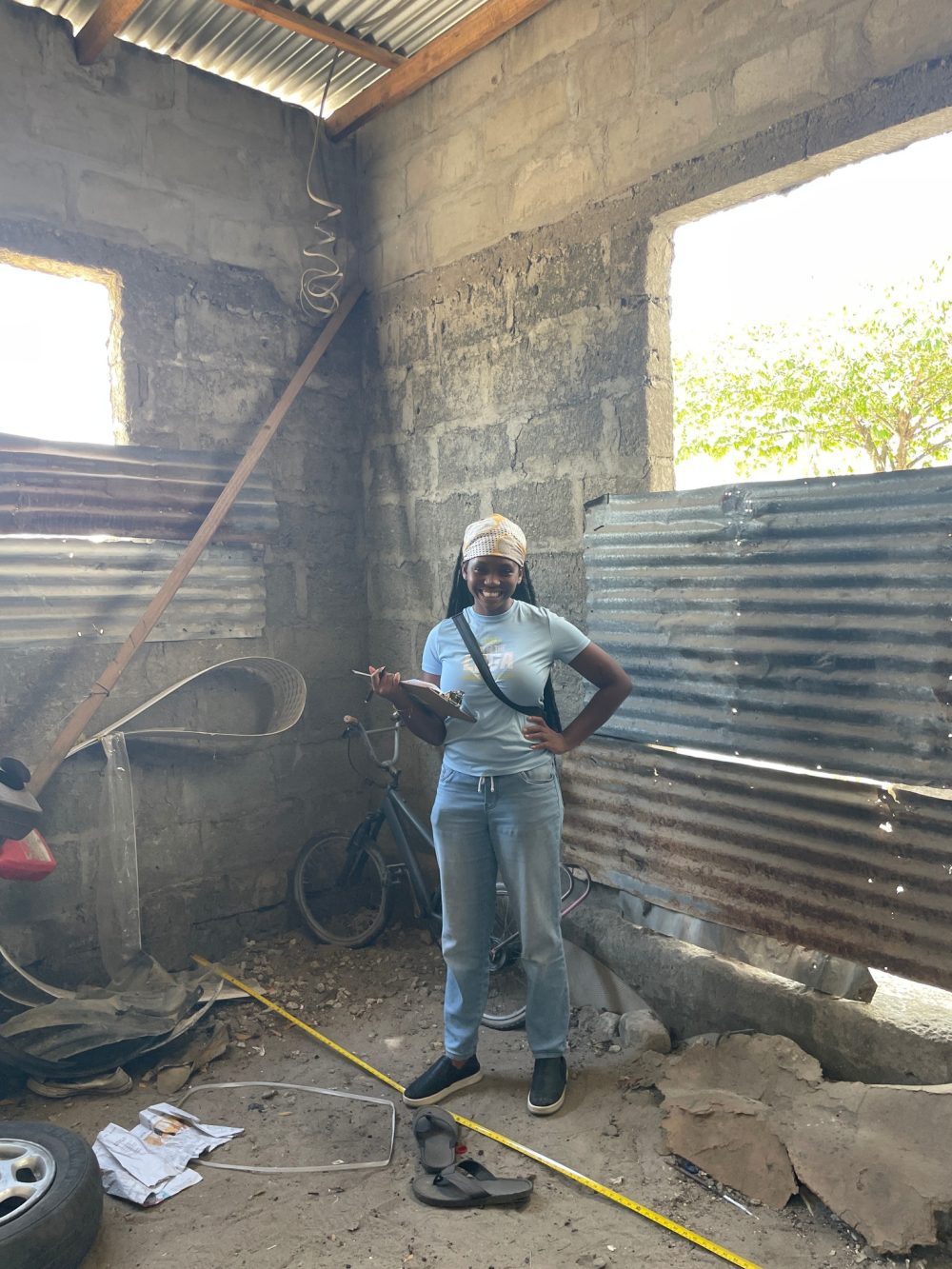
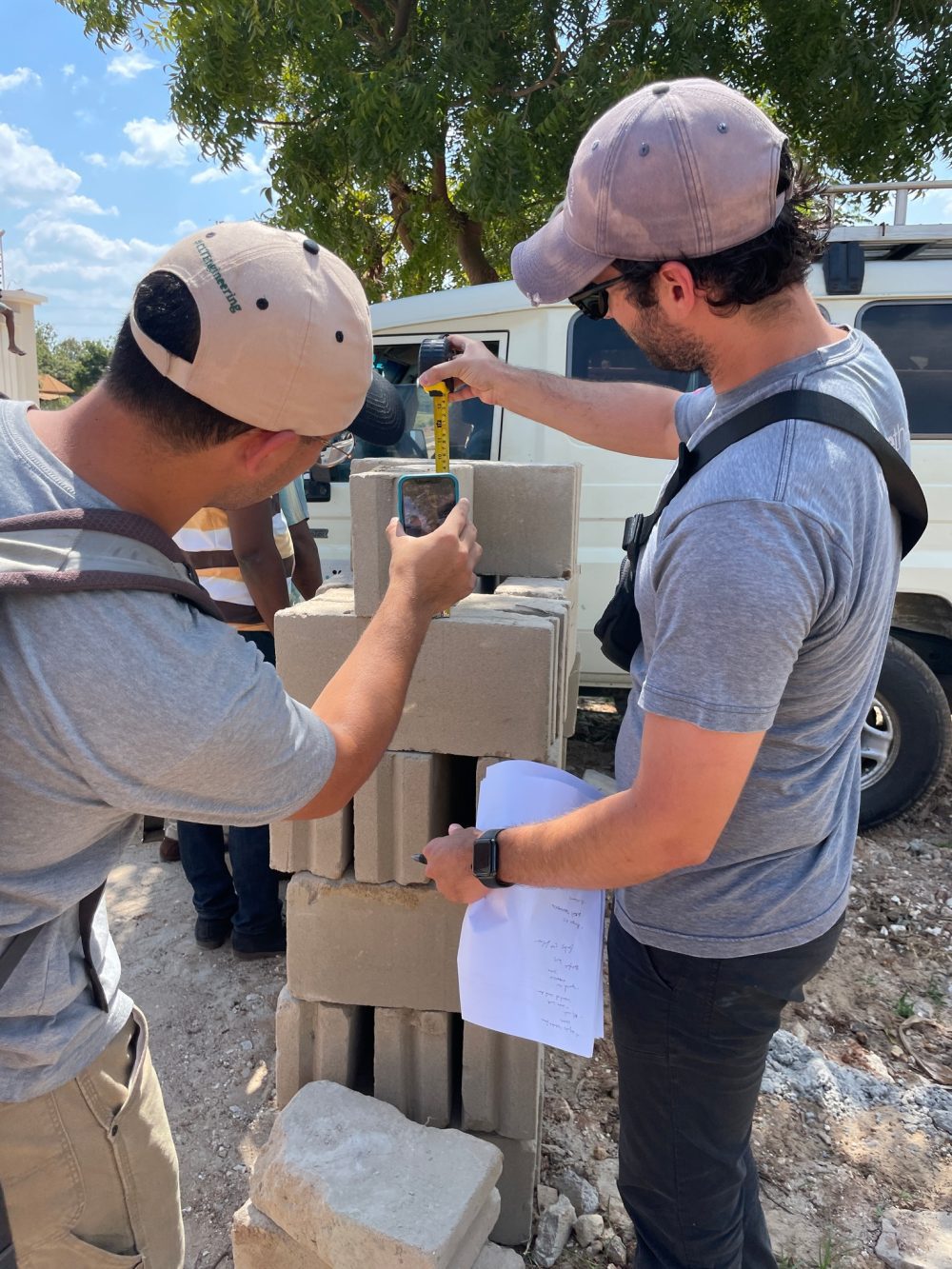
Over eight weeks, June to August, those seven architecture and engineering students surveyed and documented houses in both rural and urban settings, studied malaria outbreaks, and tested different materials – like tapioca flour – for making bricks. The UNC Charlotte team worked alongside a team from the University of Dar es Salaam, the oldest and largest public university in Tanzania.
Five new students – architecture students Savannah Cherry, Olivia Meyer, and Kayla Berlin and engineering students Leilanie Torres Curet and Gael Garza – were to travel to Tanzania this summer, but the research trip has been cancelled in response to uncertainties around federal grant programs.
Work in the spring seminar has continued, however, with the 16 students learning from the past successes and failures of previous classes. This is McCormick’s fourth class of students to develop novel brick prototypes.
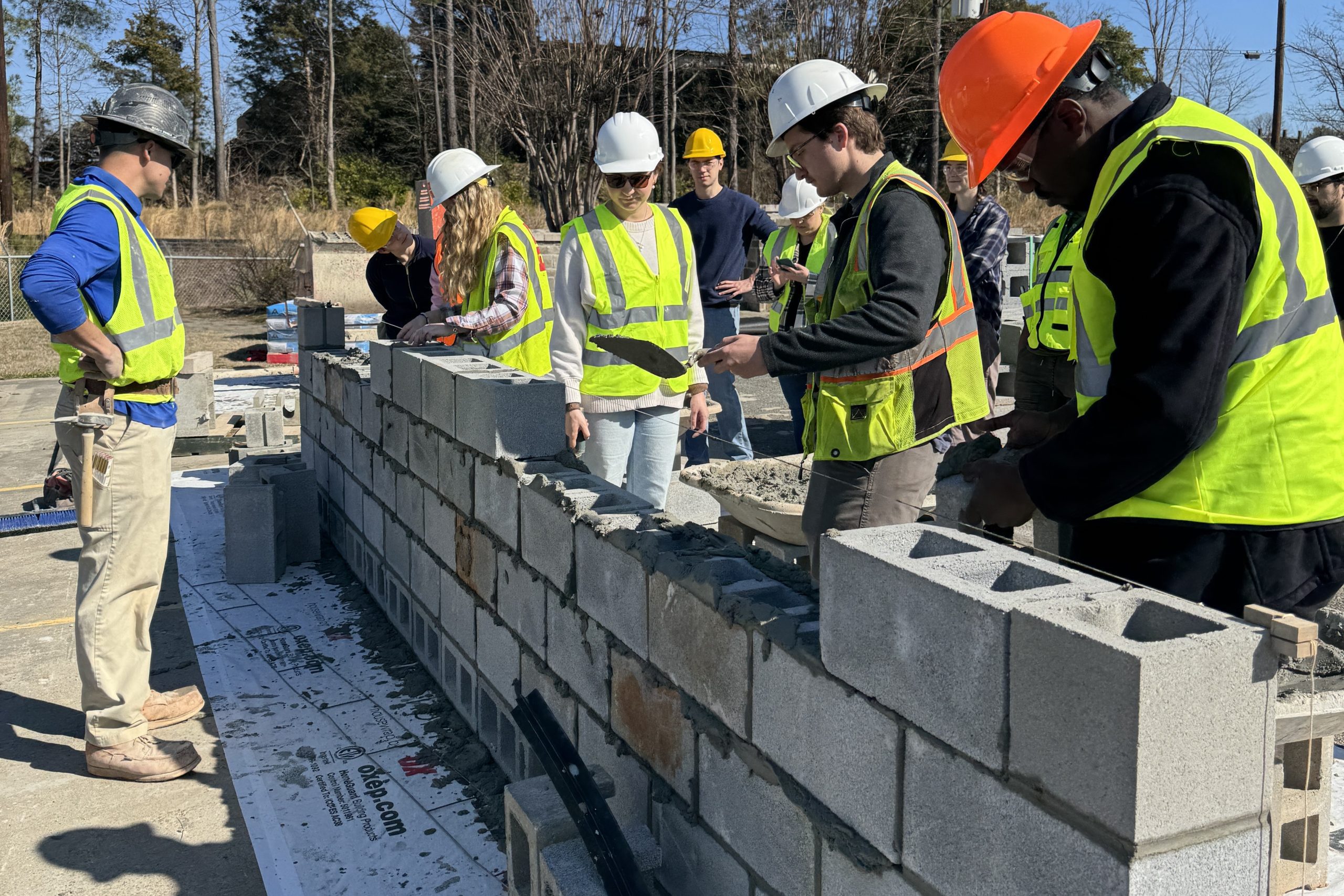
“They always come up with these wild ideas,” she said, to incorporate “really elegant simple strategies that use basic principles, simple physics.”
While malaria is not endemic in the United States, it is the leading cause of death in Tanzania and is especially deadly for children aged five and under. McCormick says that using their ingenuity to address crises in other countries is an important educational exercise for students.
“We’re training a generation of engineers and architects to be global citizens.”
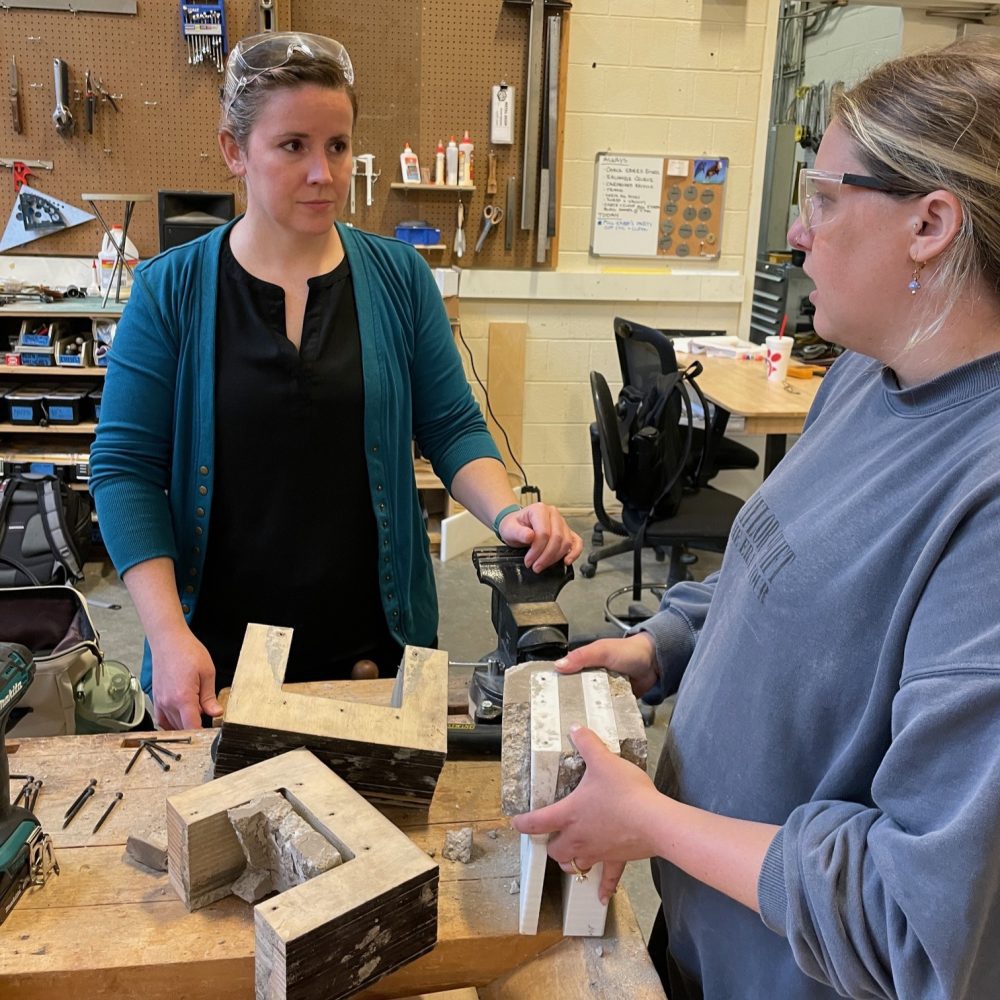
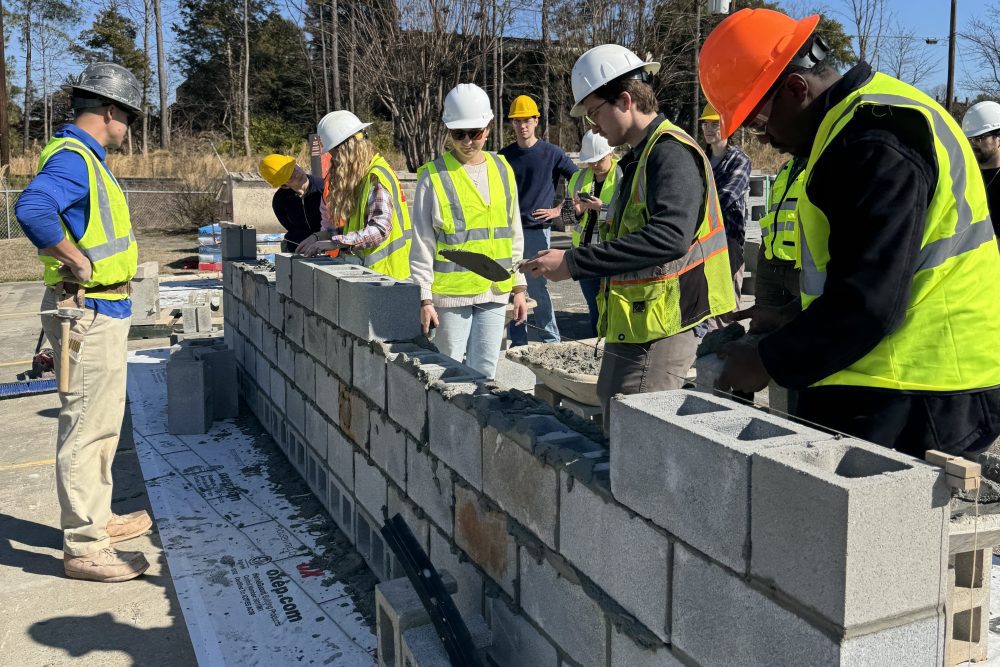
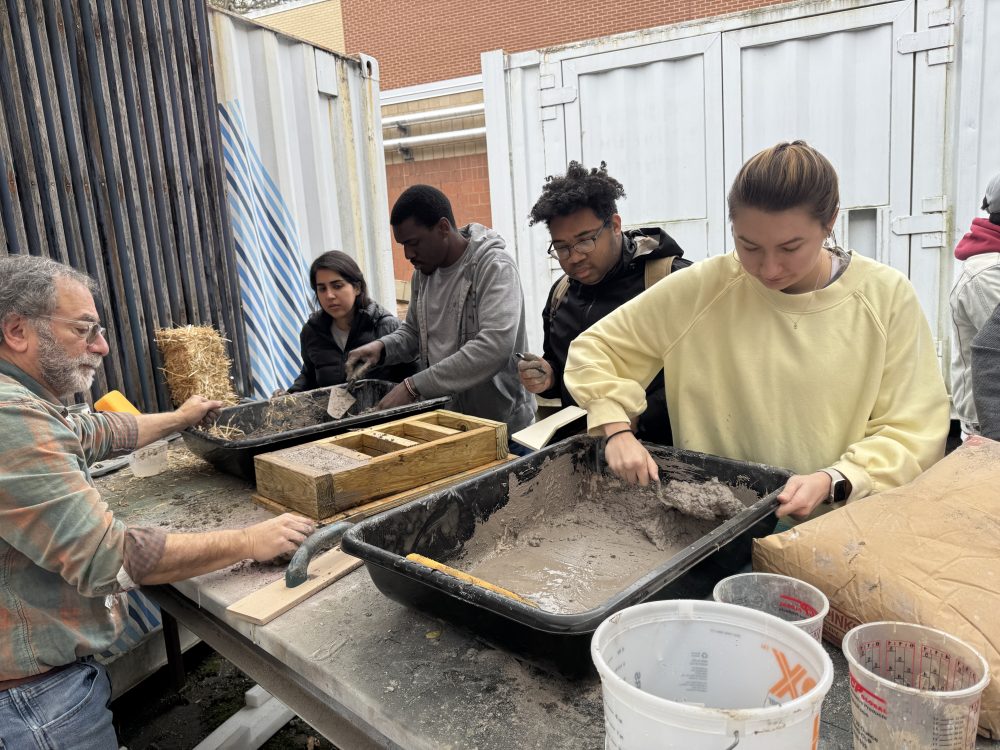
“The Building Health course has reinforced my deep-seated belief in the transformative power of infrastructure and the critical role it plays in community well-being. It aligns perfectly with my personal and educational goals to leverage my skills to create tangible improvements in public health.”
Architecture student Kayla Berlin, pictured with professor Liz McCormick, above left